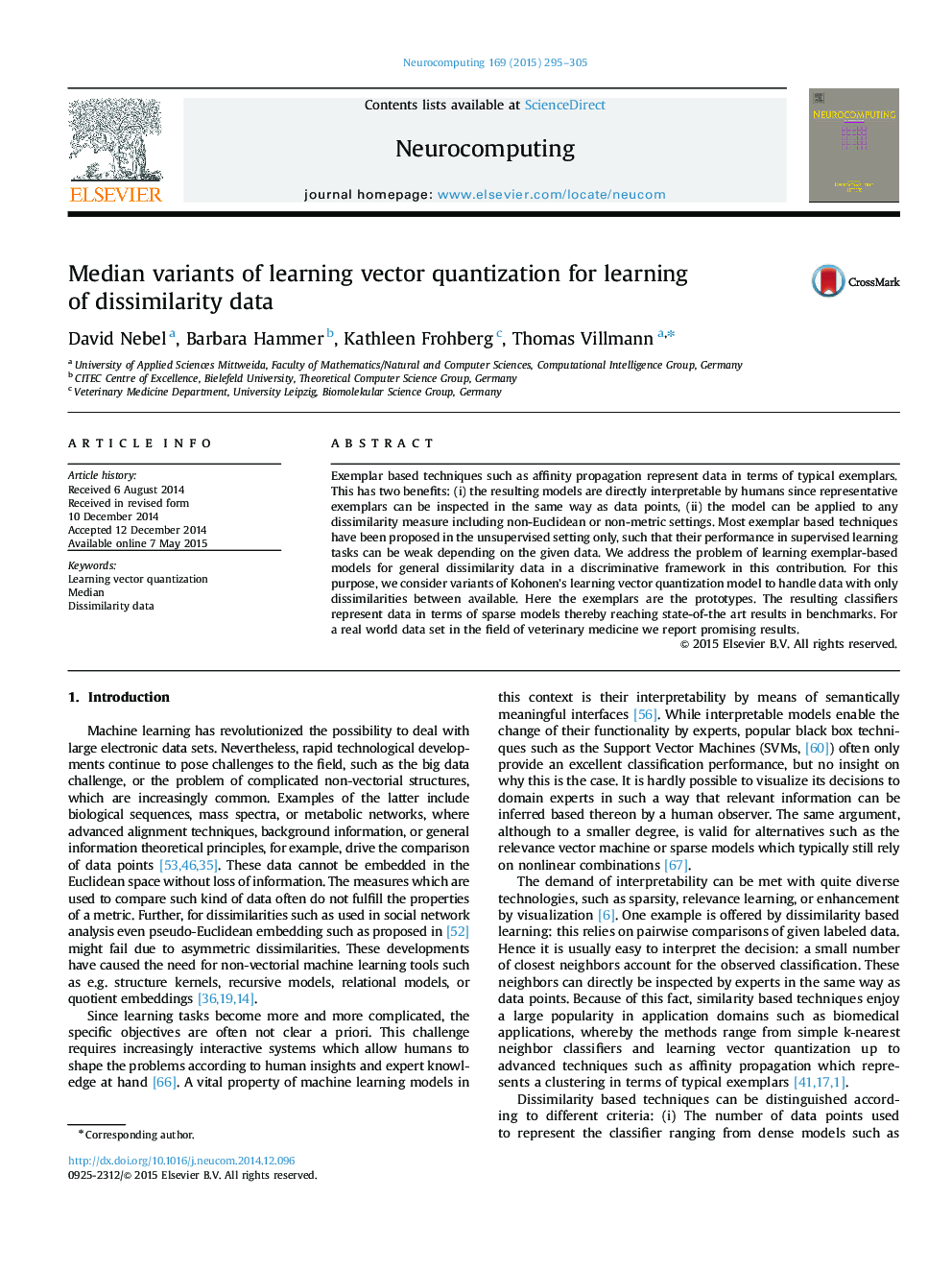| Article ID | Journal | Published Year | Pages | File Type |
|---|---|---|---|---|
| 6865606 | Neurocomputing | 2015 | 11 Pages |
Abstract
Exemplar based techniques such as affinity propagation represent data in terms of typical exemplars. This has two benefits: (i) the resulting models are directly interpretable by humans since representative exemplars can be inspected in the same way as data points, (ii) the model can be applied to any dissimilarity measure including non-Euclidean or non-metric settings. Most exemplar based techniques have been proposed in the unsupervised setting only, such that their performance in supervised learning tasks can be weak depending on the given data. We address the problem of learning exemplar-based models for general dissimilarity data in a discriminative framework in this contribution. For this purpose, we consider variants of Kohonen׳s learning vector quantization model to handle data with only dissimilarities between available. Here the exemplars are the prototypes. The resulting classifiers represent data in terms of sparse models thereby reaching state-of-the art results in benchmarks. For a real world data set in the field of veterinary medicine we report promising results.
Related Topics
Physical Sciences and Engineering
Computer Science
Artificial Intelligence
Authors
David Nebel, Barbara Hammer, Kathleen Frohberg, Thomas Villmann,
